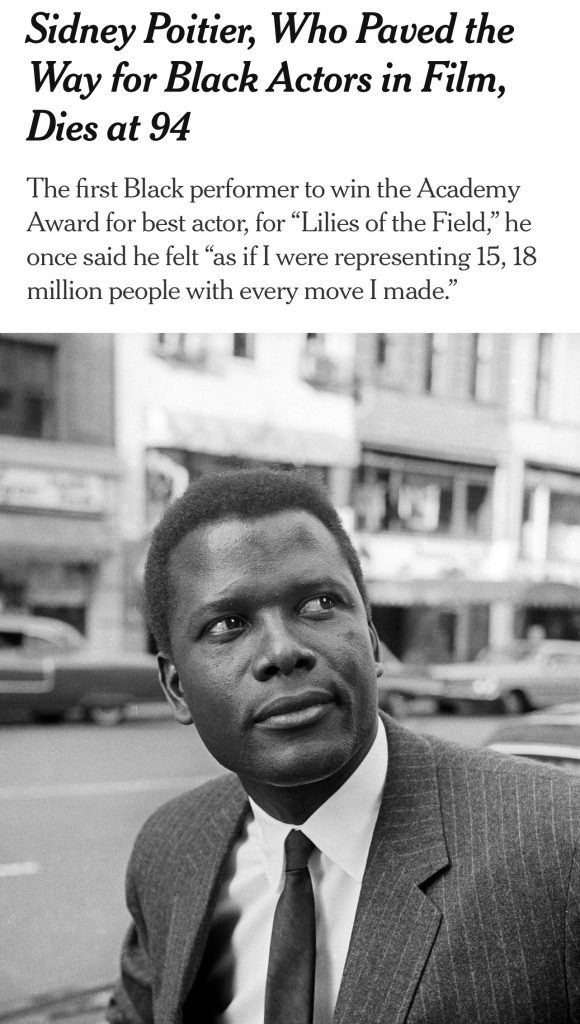For a solid 11 years or so Sidney Poitier was hugely iconic, and from his own standpoint as a man of color in a socially burdensome way. But he carried that weight and then some…carried it like a man of supreme confidence…a man of spirit and solemnity and immaculate serenity, or at least so it seemed to millions who watched and absorbed and reflected upon the meaning and metaphor of it all.
Vibe- and substance-wise, Poitier projected something extra-special and in some ways radiant — the aura of a fine, noble superstar of the late ‘50s and especially the ‘60s (primarily between The Defiant Ones and Guess Who’s Coming to Dinner)…possessed by refinement, dignity and a certain immaculate centered-ness, fortified by good looks and a beautiful Bahamian speaking voice, supplanted with occasional flashes of humor and always with a constant hum of self-ownership, steady and resolute.
With the advent of political militancy and Black power in the late ‘60s Poitier came to be regarded in some quarters as a bit too sedate and stolid, too much of an “approved by the white establishment” Black man. All peak phases and periods of vitality come to an end, of course — a natural and inevitable thing — but Poitier’s cultural imprint and representational metaphor was massive and even Collossus-like during the late Eisenhower, Kennedy and LBJ eras.
He couldn’t have figured in the realm of Spike Lee and Do The Right Thing, his time of peak potency having passed two decades earlier, but in his own time and era he was Sidney effing Poitier, and that importance and resonance can never be diminished or forgotten.

